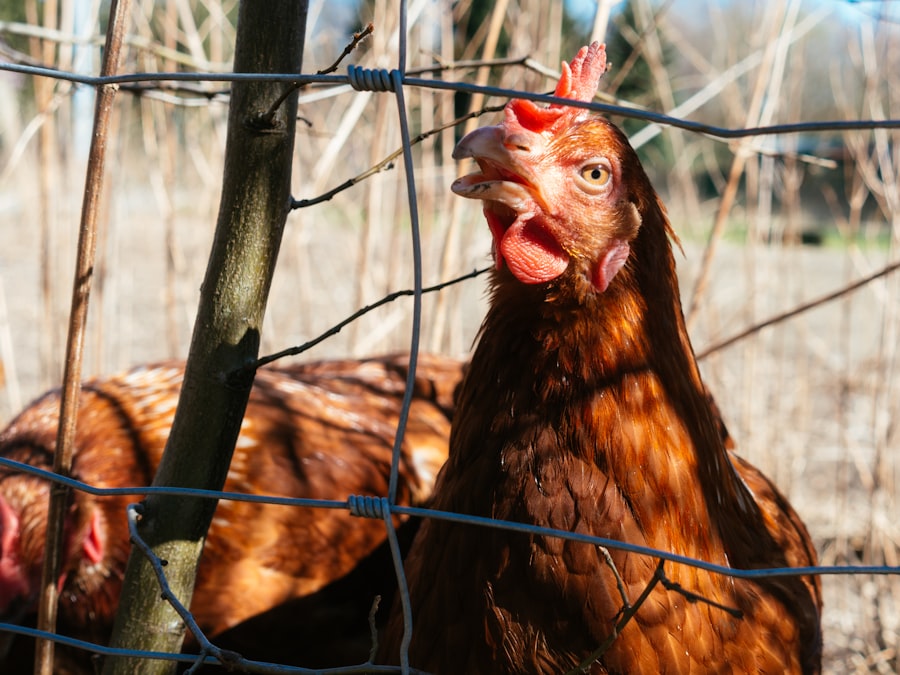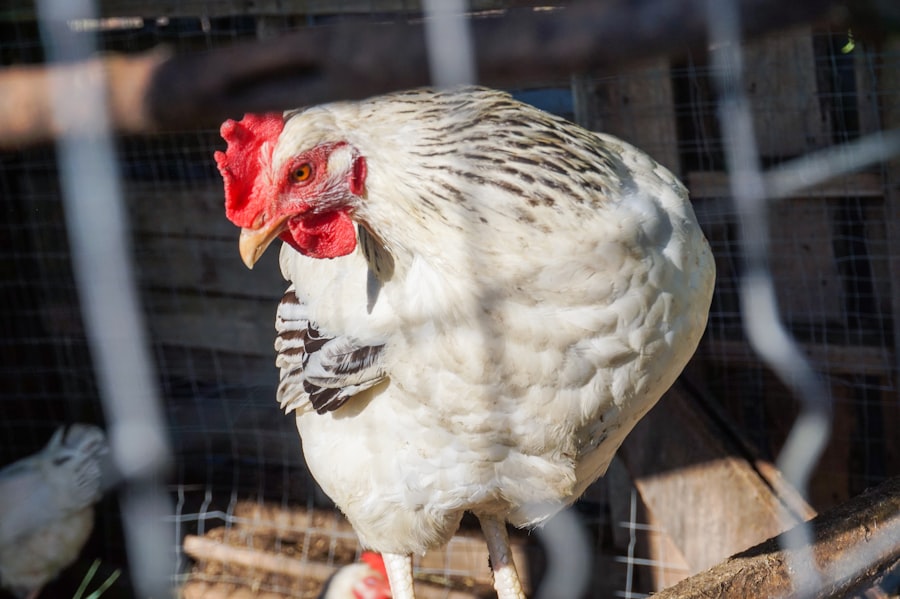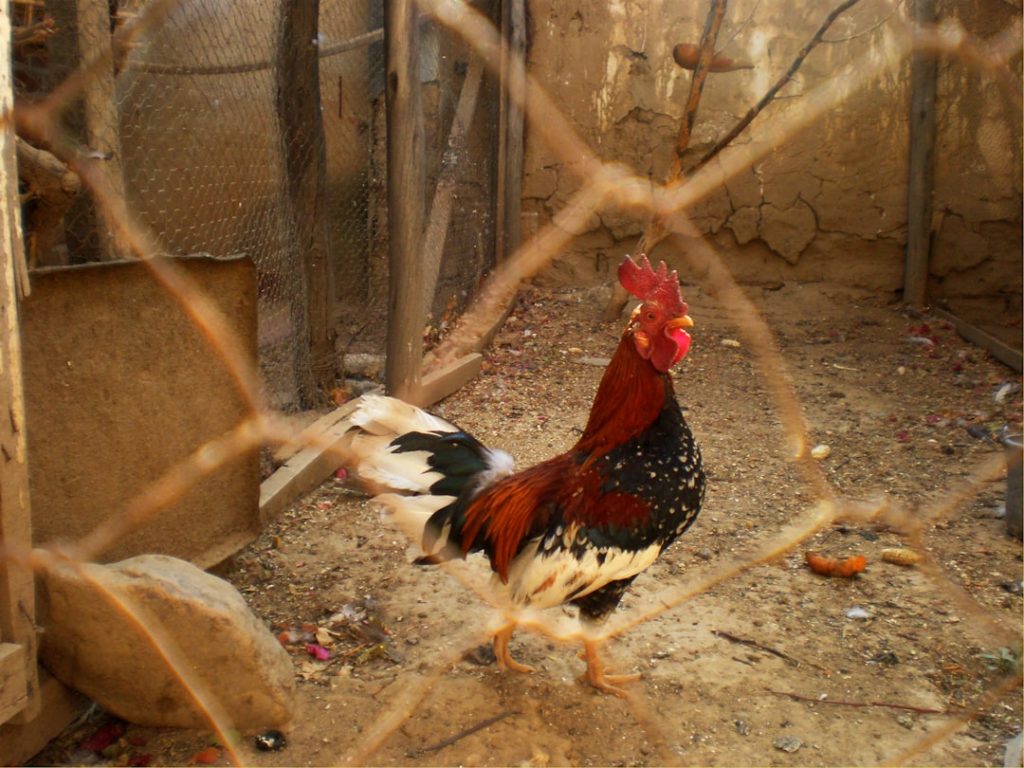Protecting chickens from predators requires a thorough understanding of potential threats and vulnerabilities. Various predators, including foxes, raccoons, hawks, and domestic dogs, pose different risks to poultry. Foxes are known for their intelligence and burrowing abilities, while hawks are aerial hunters capable of swift attacks from above.
Each predator’s behavior and hunting methods must be considered when developing an effective defense strategy. Assessing the chicken coop and run for weaknesses is crucial. This involves identifying potential entry points in fencing, examining the surrounding area for structures that predators could use as vantage points, and evaluating overall security measures.
By recognizing these vulnerabilities, chicken owners can implement targeted improvements to enhance protection. A comprehensive predator protection plan begins with a clear understanding of both the specific threats faced by the flock and the existing weaknesses in their housing and environment. This knowledge forms the foundation for developing and implementing effective safeguards to ensure the chickens’ safety.
Table of Contents
- 1 Creating Physical Barriers:
- 2 Using Natural Deterrents:
- 3 Implementing Repellents:
- 4 Designing Chicken-Friendly Spaces:
- 5 Training and Supervision:
- 6 Seeking Professional Help:
- 7 FAQs
- 7.1 What are some effective ways to keep chickens out of your garden?
- 7.2 What type of fencing is best for keeping chickens out of the garden?
- 7.3 What are some physical barriers that can be used to keep chickens out of the garden?
- 7.4 What are some natural repellents that can be used to keep chickens out of the garden?
- 7.5 How can providing alternative areas for chickens to roam help keep them out of the garden?
Key Takeaways
- Understanding the Problem: Identifying the specific threats and challenges to chicken safety and well-being is crucial for effective problem-solving.
- Creating Physical Barriers: Installing fences, coops, and other physical barriers can help keep predators and other threats away from the chickens.
- Using Natural Deterrents: Utilizing natural deterrents such as plants, animals, and sound can help discourage predators from approaching the chicken coop.
- Implementing Repellents: Applying repellents such as sprays and electronic devices can help keep pests and predators at bay.
- Designing Chicken-Friendly Spaces: Creating a safe and comfortable environment for chickens to roam and roost is essential for their overall well-being and safety.
- Training and Supervision: Educating yourself and others on proper chicken care and providing regular supervision can help prevent and address potential issues.
- Seeking Professional Help: When in doubt or facing persistent problems, seeking advice and assistance from professionals such as veterinarians or animal control experts can be beneficial.
Creating Physical Barriers:
Installing Fencing and Netting
One of the most effective ways to protect your chickens from predators is by creating physical barriers around their coop and run. This can include installing sturdy fencing that is buried at least a foot underground to prevent digging predators from gaining access. Additionally, adding a roof or netting over the top of the run can help deter aerial predators like hawks from swooping in for a meal.
Maintenance and Additional Measures
It’s important to regularly inspect and maintain these physical barriers to ensure that they remain intact and effective in keeping predators out. Another physical barrier that can be effective in deterring predators is the use of motion-activated lights and alarms. These devices can startle predators and make them think twice about approaching your coop.
Securing Coop Doors and Windows
Additionally, installing predator-proof latches and locks on coop doors and windows can add an extra layer of security to keep your chickens safe. By creating physical barriers around your chicken coop and run, you can significantly reduce the risk of predators gaining access to your flock.
Using Natural Deterrents:

In addition to physical barriers, there are also natural deterrents that can help keep predators away from your chickens. One effective natural deterrent is the presence of guard animals such as dogs or geese. These animals can help protect your flock by alerting you to potential threats and even confronting predators if necessary.
Another natural deterrent is the use of strong-smelling plants like lavender or mint around the perimeter of the coop and run. Predators may be deterred by these strong scents and choose to avoid the area altogether. You can also consider using predator decoys such as fake owls or snakes to create the illusion that a larger predator is already present in the area.
This can make real predators think twice about approaching your coop. Additionally, maintaining a clean and tidy coop and run can help reduce the likelihood of attracting predators in the first place. By using natural deterrents in conjunction with physical barriers, you can create a more robust defense system for your chickens.
Implementing Repellents:
In some cases, it may be necessary to use repellents to keep predators away from your chickens. There are a variety of commercial repellents available that are designed to deter specific types of predators. For example, there are sprays and granules that can be used to deter foxes, raccoons, and other ground-dwelling predators.
These repellents often contain natural ingredients that emit strong odors or tastes that are unpleasant to predators. Another option for implementing repellents is to use electronic deterrents such as ultrasonic devices that emit high-frequency sounds that are unpleasant for predators but harmless to chickens. It’s important to carefully follow the instructions for any repellents you use and regularly monitor their effectiveness.
While repellents can be a useful tool in deterring predators, they should be used in conjunction with other defense strategies for maximum effectiveness.
Designing Chicken-Friendly Spaces:
In addition to protecting your chickens from predators, it’s also important to create a safe and comfortable environment for them to thrive in. This includes providing ample space for your flock to roam and forage, as well as providing secure roosting areas within the coop. By designing chicken-friendly spaces, you can help reduce stress and minimize the risk of injury or illness within your flock.
Consider incorporating natural features such as shrubs, trees, and logs into the chicken run to provide enrichment and cover for your chickens. This can also help create a more naturalistic environment that may be less attractive to predators. Additionally, providing plenty of fresh water and a balanced diet for your chickens can help keep them healthy and resilient against potential threats.
By designing chicken-friendly spaces, you can create a more harmonious environment for both your chickens and their human caretakers.
Training and Supervision:

Training Your Chickens to Recognize Threats
One crucial aspect of safeguarding your chickens from predators is providing them with proper training. This involves teaching your chickens to identify and respond to potential threats. By doing so, you can empower them to better defend themselves against predators. This training can include teaching your chickens to seek shelter or sound an alarm in response to potential threats.
Regular Supervision for Early Detection
Regular supervision of your flock is essential for identifying and addressing any vulnerabilities in their environment before they become a serious threat. This includes checking for signs of wear or damage to physical barriers, as well as monitoring for any signs of predator activity in the area. By regularly supervising your flock, you can detect potential threats early on and take necessary measures to protect your chickens.
Empowering Your Chickens through Training and Supervision
By providing proper training and supervision, you can empower your chickens to better protect themselves against potential threats. This not only helps to reduce the risk of predator attacks but also gives you peace of mind knowing that your flock is well-equipped to handle potential dangers. By taking a proactive approach to protecting your chickens, you can create a safer and more secure environment for them to thrive.
Seeking Professional Help:
If despite your best efforts, you find that predators continue to pose a significant threat to your flock, it may be time to seek professional help. This can include consulting with local wildlife experts or hiring professional trappers to help remove problem predators from the area. Additionally, reaching out to experienced poultry keepers or joining local poultry associations can provide valuable insights and support in developing effective predator protection strategies.
In some cases, it may also be necessary to consult with a veterinarian or poultry health specialist if you suspect that predators are causing stress or illness within your flock. These professionals can provide guidance on managing the health and well-being of your chickens in the face of ongoing predator threats. By seeking professional help, you can gain access to valuable resources and expertise that can help you better protect your flock from predators.
In conclusion, protecting your chickens from predators requires a multi-faceted approach that includes understanding the nature of the problem, creating physical barriers, using natural deterrents, implementing repellents, designing chicken-friendly spaces, providing training and supervision, and seeking professional help when necessary. By taking proactive steps to safeguard your flock, you can create a safer and more secure environment for your chickens to thrive in. With careful planning and ongoing vigilance, you can help ensure that your chickens remain safe from harm and continue to bring joy and sustenance to you and your family for years to come.
If you’re looking for ways to keep chickens out of your garden, you might want to check out this article on turning a shed into a chicken coop. It offers practical tips on creating a safe and comfortable space for your chickens, which can help keep them from wandering into your garden.
FAQs
What are some effective ways to keep chickens out of your garden?
Some effective ways to keep chickens out of your garden include using fencing, creating physical barriers, using repellents, and providing alternative areas for the chickens to roam.
What type of fencing is best for keeping chickens out of the garden?
A sturdy wire or mesh fencing that is at least 4 feet tall and buried a few inches into the ground is best for keeping chickens out of the garden. This will prevent them from digging under the fence.
What are some physical barriers that can be used to keep chickens out of the garden?
Physical barriers such as chicken wire, netting, or cloches can be used to protect specific plants or areas of the garden from chickens.
What are some natural repellents that can be used to keep chickens out of the garden?
Natural repellents such as citrus peels, garlic, or hot pepper spray can be used to deter chickens from entering the garden.
How can providing alternative areas for chickens to roam help keep them out of the garden?
By providing alternative areas for chickens to roam, such as a designated free-range area or a chicken run, they are less likely to venture into the garden in search of food and entertainment.
Meet Walter, the feathered-friend fanatic of Florida! Nestled in the sunshine state, Walter struts through life with his feathered companions, clucking his way to happiness. With a coop that’s fancier than a five-star hotel, he’s the Don Juan of the chicken world. When he’s not teaching his hens to do the cha-cha, you’ll find him in a heated debate with his prized rooster, Sir Clucks-a-Lot. Walter’s poultry passion is no yolk; he’s the sunny-side-up guy you never knew you needed in your flock of friends!







